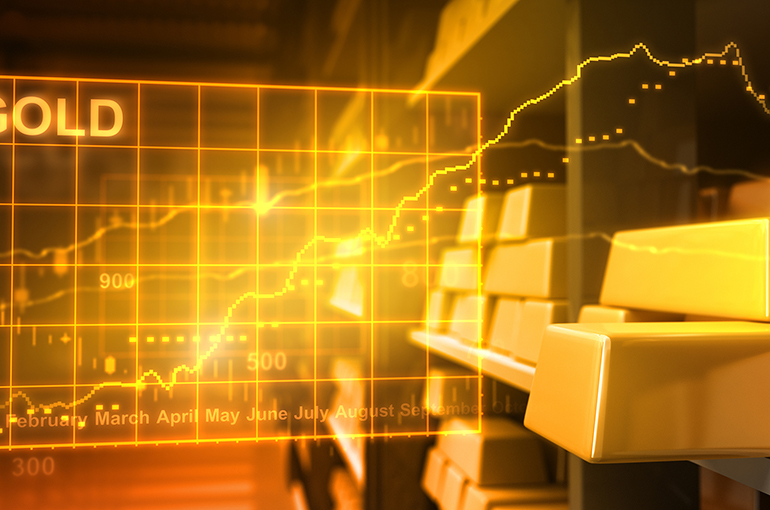 Shanghai Gold Futures Jump to All-Time High Amid Expected Shift to US Rate Cuts
Shanghai Gold Futures Jump to All-Time High Amid Expected Shift to US Rate Cuts(Yicai Global) July 20 -- The main contract of Shanghai gold futures surged to a historic high as investors predict the central bank of the United States will stop raising interest rates due to an economic downturn.
The futures contract rose to CNY463.18 per gram (USD64.50) intraday yesterday, the highest since its launch in 2008. It closed at CNY462.48 per gram, up 1.5 percent. Market participants said that gold futures may further rise in the future.
"We believe that [a further increase in gold prices] may happen when there is an expectation of interest rate cuts in the market," The Paper reported, citing Jerry Chen, senior analyst at Gain Capital. After a streak of hikes since March 2020, the first cut is predicted to take place in the first quarter of 2024, he added.
Chen pointed out that gold prices tend to enter a new bull market during a transition from the end of a rate hike cycle to the start of a new one. This happened in 2007 and 2019, when gold prices rose significantly in anticipation of lower rates. In the past two rate-cut cycles, gold prices reached record highs, and this pattern could repeat.
The gold market will enter a rising cycle in the second half of this year, per Xu Ying, analyst at Orient Futures. Prices will fluctuate and move upward due to expectations of a recession and a shift to rate cuts in the States in the fourth quarter, Xu added.
The U.S. Dollar Index dropped below 100 as market insiders got less sure of new rate hikes before the past two adjustments, which boosted gold prices, according to Galaxy Securities. The Chinese brokerage predicts that the Fed is likely to stop raising the federal funds rate in the third quarter, and the economic and employment outlook will worsen in the fourth quarter. This will increase the anticipation of rate cuts in 2024, which should further support gold prices.
Central banks worldwide set off the latest gold fever in 2022. China’s gold reserves stood at almost 68 million ounces as of June 30, up 680,000 ounces from a month earlier, rising for eight consecutive months, according to the State Administration of Foreign Exchange.
Many central banks are worried about how geopolitical issues will affect inflation, interest rates, and market outlook, according to the World Gold Council. Therefore, they are likely to keep buying gold as a hedge against these uncertainties and changing investment conditions.
Editor: Emmi Laine